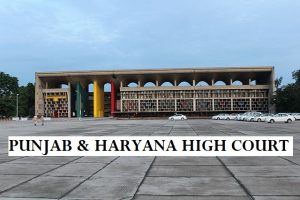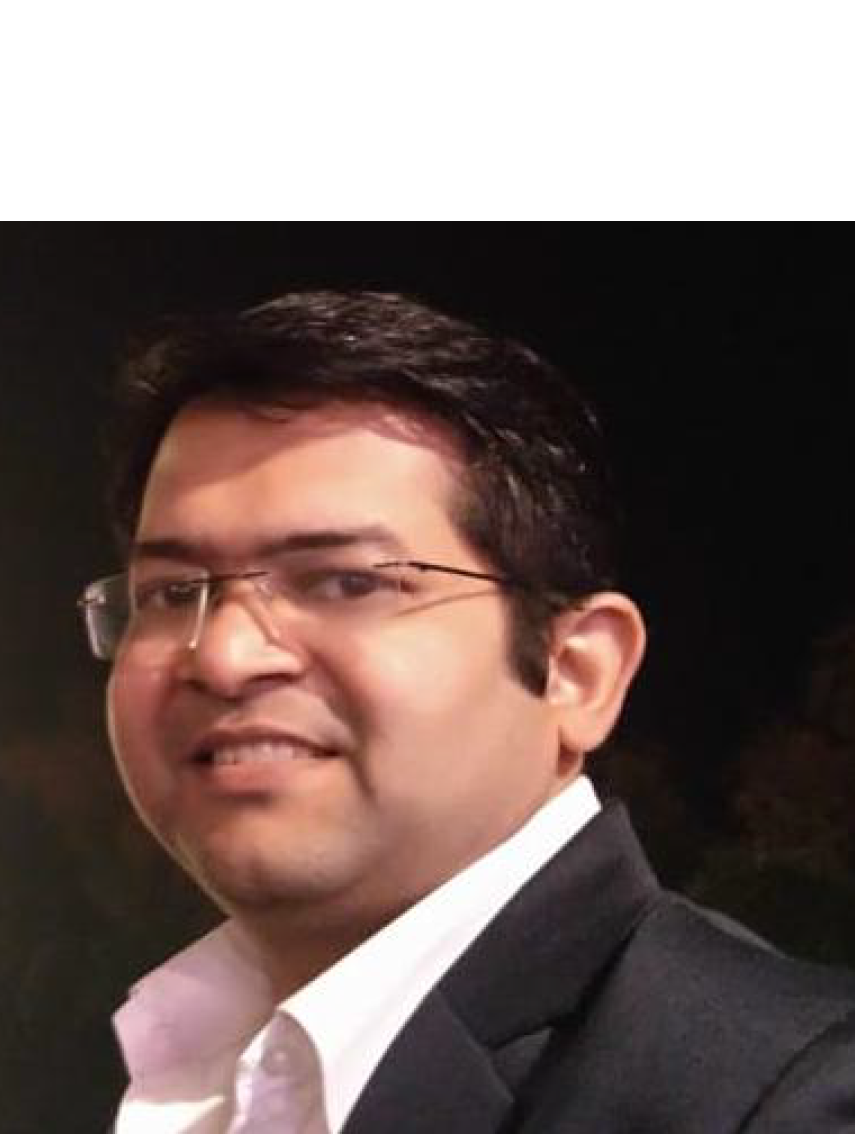 The Hon’ble High Court of Punjab and Haryana vide its order dated 15.07.2022 in the matter of Sunil Kumar and Vakil Chand Alias Vicky Vs. State of Haryana in CRM-M-11274-2021(O&M) and CRM-M-16234-2021 (O&M), granted bail to the petitioner considering that there is no compelling circumstances as would call for continued custodial detention of an accused in a Magisterial Trial, when they have already undergone 1 ½ years of actual sentence and the trial is still at the initial stage and is likely to take long to conclude. Further the Court needs to strike a fine balance while considering an application of bail since the adopted criminal jurisprudence in the country hinges on presumption of innocence. The power to grant bail is not to be deployed as a mechanism for imposing sentence even before a guilt is yet to be proved and established.
The Hon’ble High Court of Punjab and Haryana vide its order dated 15.07.2022 in the matter of Sunil Kumar and Vakil Chand Alias Vicky Vs. State of Haryana in CRM-M-11274-2021(O&M) and CRM-M-16234-2021 (O&M), granted bail to the petitioner considering that there is no compelling circumstances as would call for continued custodial detention of an accused in a Magisterial Trial, when they have already undergone 1 ½ years of actual sentence and the trial is still at the initial stage and is likely to take long to conclude. Further the Court needs to strike a fine balance while considering an application of bail since the adopted criminal jurisprudence in the country hinges on presumption of innocence. The power to grant bail is not to be deployed as a mechanism for imposing sentence even before a guilt is yet to be proved and established.
The Petitioners filed the present petitions under Section 439 of the Code of Criminal Procedure (hereinafter referred to as ‘CrPC’) for grant of regular bail to the petitioners in case bearing FIR No.45 dated 06.03.2019 under Sections 406, 420, 467, 468, 471 and 120-B of the Indian Penal Code, 1860 (hereinafter referred to as ‘IPC’) registered at Police Station Adampur, District Hisar.
Facts: –
- That a proprietorship firm under the name of M/s Aggarwal Cotton Industries, Adampur, District Hissar got registered under GST Act, 2017 on 28.09.2017 having GST No. GSITIN 06BKYPC2378E1ZY, and the proprietor has been shown as Sh. Vakil Chand, resident of Sirsa (petitioner in CRM-M-16234-2021) on GST Portal with the mobile number, Aadhar Card and bank details.
- That on verification of the address of the said firm, it was found that no such firm was in existence and it was found that the business place of the firm is New Kapas Mandi, Adampur, however, the dealers found present at the spot informed that no such firm is operational at the given address, and they do not know about the proprietor of the firm i.e., Vakil Chand. Further on enquiry from Market Committee, Adampur, the Secretary-cum E.O. of Market Committee, replied in writing that M/s Aggarwal Cotton Industries, Adampur was not registered in the month of November, 2017 in their office.
- That the tax payer Vakil Chand had shown a rent agreement with one Sh. Deepak Kumar s/o Sh. Roshan Lal, r/o New Kapas Mandi, Adampur during registration of the FIR, however, no shop is situated in New Kapas Mandi, Adampur, in the name of Sh. Deepak Kumar.
- That the taxpayer was found involved in the evasion of tax by way of getting registration in the name of M/s Aggarwal Cotton Industries under GST Act by means of wilful-misstatement and suppression of fact and found to be involved in wrong availment and utilization of ITC for disposal of tax liability without actual payment of tax, resulting in loss of revenue to State exchequer. Further as per the report submitted by the tax payer i.e., Vakil Chand the total outward supply up to April, 2018 is Rs. 1,91,99,58,260/- and he has claimed ITC worth Rs. 9,60,41,488/-.
Petitioners’ Submissions: –
- It was submitted on the behalf of the petitioners that Sunil Kumar (petitioner in CRM-M-11274-2021) is a dealer who met various buyers and convinced them to secure supply of cotton bales from the firm namely M/s Aggarwal Cotton Industries, Adampur and the Co-accused Vakil Chand (petitioner in CRM-M-16234-2021) is alleged to be the proprietor of the said firm.
- That a reference was made to the statement of witnesses recorded by the investigating agency under Section 161 of CrPC, to contend that the alleged bogus invoices are in the favour of said persons who have already deposited tax with due interest with the Government and as such, there is no loss to the public exchequer.
- It is further submitted that the Petitioner Vakil Chand is in custody since 07.12.2020, while Petitioner Sunil Kumar is in custody since 18.12.2020, and both the petitioners do not have any other criminal case registered against them and have already undergone more than 1½ years of actual custody.
- It was also submitted that besides, the investigation in the matter is already complete and out of 17 witnesses only 2 witnesses have been examined so far, the conclusion of trial shall take long and continued custodial incarceration of the petitioners is not likely to advance any interest of justice.
- It was submitted that the maximum sentence under Section 132 of the CGST Act, 2017 is up to 5 years with fine and that against the alleged commission of offence punishable under Section 132 of the Central Goods and Service Tax Act, 2017, the offence under the Indian Penal Code, 1860 ought not to have been attracted.
Submissions on behalf of State: –
- It was submitted on the behalf of the State that the petitioners had connived with each other and had shown transaction with a total turnover of Rs. 191 Crores (approx.), and had availed input tax credit of Rs. 9.60 Crores, thus, caused loss to the State exchequer.
- However, it was not disputed that the petitioners are custody for more than 1 ½ years and only 2 witnesses have been examined so far.
- The statement of the witnesses recorded under Section 161 CrPC are not disputed, and as per the statement, the input tax credit which was wrongly retained by the firm already stands paid by the purchasers.
Held: –
- The Hon’ble Court after considering the submissions from the both sides, facts of the case and the law applicable, found that no proceedings under the CGST Act, 2017 has been instituted against the petitioners, which may give rise to an inference that there is actual loss to exchequer and even the witnesses of the State, record their statement to that effect. There is no rebuttal to said statement at this stage and the Court has to assume that the State exchequer has been indemnified for the pecuniary loss.
- The Hon’ble Court considering the fact that the present case being a Magisterial trial, wherein the petitioners have already undergone substantive sentence of 1 ½ years and only 2 witnesses have been examined so far, coupled with a fact that the petitioners do not suffer from any criminal antecedents, found it appropriate to enlarge the petitioners on bail.
- The Hon’ble Court considering the fact that there is no apprehension expressed by the State about the petitioners absconding from trial or tampering with prosecution evidence, took reference of the judgment of the Hon’ble Supreme Court in Satender Kumar Antil Vs Central Bureau of Investigation and another, wherein Presumption of Innocence while dealing with the issue of ‘Bail’ was discussed by the Hon’ble Court and it was observed: –
‘……17. We may only state that notwithstanding the special provisions in many of the countries world over governing the consideration for enlargement on bail, courts have always interpreted them on the accepted principle of presumption of innocence and held in favour of the accused.
- The position in India is no different. It has been the consistent stand of the courts, including this Court, that presumption of innocence, being a facet of Article 21, shall inure to the benefit of the accused. Resultantly burden is placed on the prosecution to prove the charges to the court of law. The weightage of the evidence has to be assessed on the principle of beyond reasonable doubt…….’
- With the above, it was found by the Hon’ble Court that there were no compelling circumstances as would call for continued custodial detention of an accused in a Magisterial trial when they have already undergone 1 ½ years of actual sentence, the trial is still at the initial stage and is likely to take long to conclude. The Court needs to strike a fine balance while considering an application of bail since the adopted criminal jurisprudence in the country rests on presumption of innocence.
- It was also found by the Hon’ble Court that the power to grant bail is not to be utilized as a mechanism for imposing sentence even before guilt is proved and established.
The Hon’ble Court with the above findings allowed the petitions and admitted the petitioners to regular bail subject to heavy bail bonds/surety to the satisfaction of concerned Trial Court. It was made clear that the petitioners shall not extend any threat and shall not influence any prosecution witnesses in any manner directly or indirectly.



